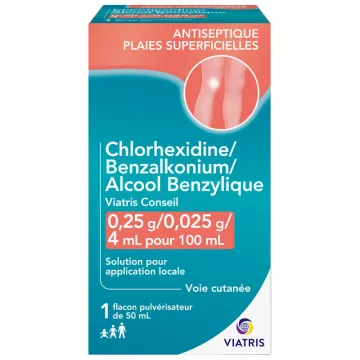

What is a disinfectant and how does it work?
A disinfectant is a chemical substance used to eliminate pathogens and harmful micro-organisms from inanimate surfaces. In technical terms, a disinfectant acts at the molecular level to destroy or inactivate micro-organisms by damaging their cellular structures or interfering with their metabolism. It's crucial to note that disinfectants are different from antiseptics, the latter being used on living skin.
Which types of disinfectant are most effective against viruses and bacteria?
Alcohol-based disinfectants are among the most effective, requiring at least 70% alcohol to effectively eliminate enveloped viruses and bacteria. Chlorine-based compounds, such as sodium hypochlorite (bleach), are extremely effective for a wide range of disinfection purposes. Peroxides, including hydrogen peroxide, are also used for their effectiveness against spores and their favorable safety profile.
How do I use a disinfectant correctly to ensure maximum protection?
For optimum effectiveness, it's essential to clean the surface with soap and water before applying the disinfectant. Read the manufacturer's instructions carefully regarding the contact time required for the disinfectant to be effective, often referred to as the "remanence time". Be sure to ventilate the area when using strong chemicals to avoid inhaling harmful vapors.
What precautions should I take when using disinfectants?
It is crucial to wear gloves and, in some cases, personal protective equipment such as masks or goggles when applying disinfectants. Always take care not to mix different disinfectants, as this can lead to dangerous chemical reactions. Keep disinfectants out of the reach of children and pets to avoid accidents.
Why is it important to use a disinfectant in hospitals and healthcare facilities?
In hospital environments, the use of disinfectants is crucial to prevent the spread of nosocomial infections. These environments require high disinfection standards to protect patients whose immune systems may be compromised. Hospital-grade disinfectants are specially formulated to eliminate a wide range of resistant micro-organisms, and are regularly used on frequently touched surfaces such as door handles and bed rails.
What is the environmental impact of disinfectants?
The massive use of disinfectants has an ecological impact, particularly in terms of aquatic toxicity. Chlorinated compounds and phenols can persist in the environment, harming aquatic flora and fauna. It is advisable to choose biodegradable disinfectants and follow the recommendations for their disposal to minimize harmful effects on the environment.
How to choose the best disinfectant for your home?
The choice of disinfectant depends on a number of factors, including the type of surfaces to be cleaned, the presence of sensitive people such as children or the elderly, and personal preferences regarding ingredients and fragrances. Opt for certified products that have been tested for efficacy and safety, and consider environmentally-friendly products.
What are the natural alternatives to chemical disinfectants?
For those who prefer to avoid chemicals, natural alternatives such as white vinegar or tea tree oil can be used with certain reservations. Although less effective against all types of germs, these substances can offer a gentler cleaning solution for everyday tasks.
How are disinfectants regulated, and what does this mean for consumers?
Disinfectants are regulated by national and international health bodies to ensure their efficacy and safety. In Europe, for example, disinfectants are subject to strict regulations requiring approval of active ingredients and accurate product labeling. For consumers, choosing a product that complies with current regulations means ensuring its effectiveness against germs and its safety of use in the domestic or professional environment.
What innovations are there in the field of disinfectants?
Significant innovations are emerging in the disinfectant sector, including the introduction of more ecological and less toxic formulations. Research is focusing on the development of plant-based disinfectants and improved delivery technologies, such as electrostatic sprays, which ensure more uniform coverage of surfaces. In addition, the use of nanotechnology to create self-disinfecting surfaces represents a promising advance.
Is it safe to use disinfectants in areas with children or pets?
The use of disinfectants in areas frequented by children or pets requires specific precautions. We recommend choosing products that are non-toxic and safe in the event of accidental contact. After applying a disinfectant, it's important to air the area thoroughly and ensure that surfaces are dry before allowing children or pets to use them. Always consult the label for specific instructions on safe use around sensitive populations.
How should disinfectants be stored to ensure their effectiveness?
Proper storage of disinfectants is essential to maintain their effectiveness. Keep disinfectants in a cool, dry place, away from direct sunlight and extreme temperatures. Be sure to close containers tightly after each use to prevent evaporation of the active ingredients. Respect the expiration date indicated on the packaging, as disinfectants can lose their effectiveness over time.
What are the criteria for selecting a disinfectant for a specific use, such as kitchens or bathrooms?
When choosing a disinfectant for specific areas such as kitchens or bathrooms, there are several factors to consider. For kitchens, opt for fragrance-free disinfectants approved for contact with food surfaces. For bathrooms, opt for products that are effective against the mold and bacteria typical of these humid environments. Always check that the product is suitable for the type of surface to be treated, and that it meets the disinfection standards required for its intended use.